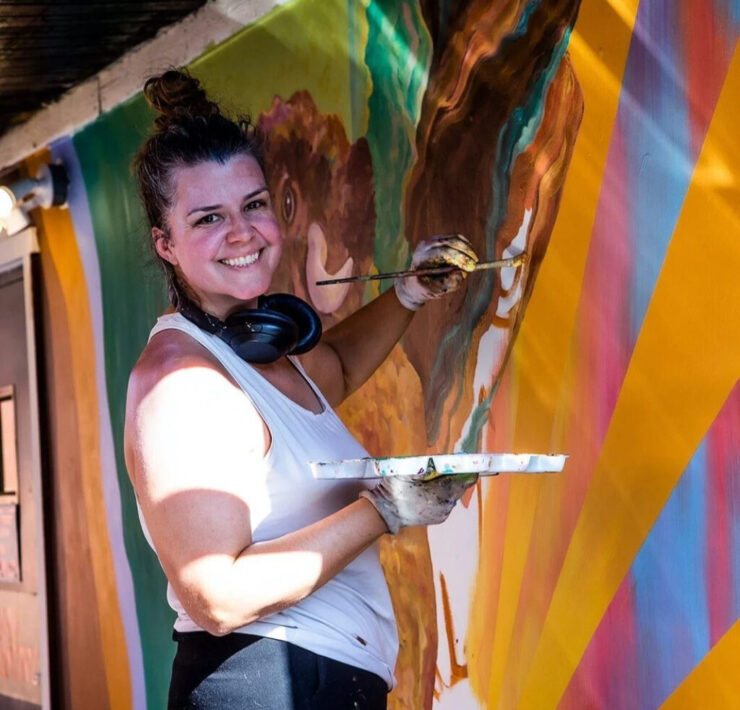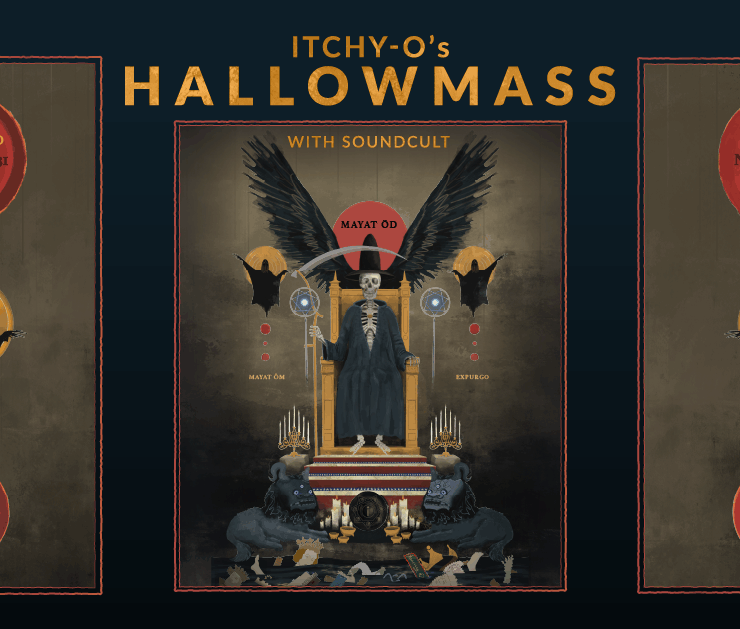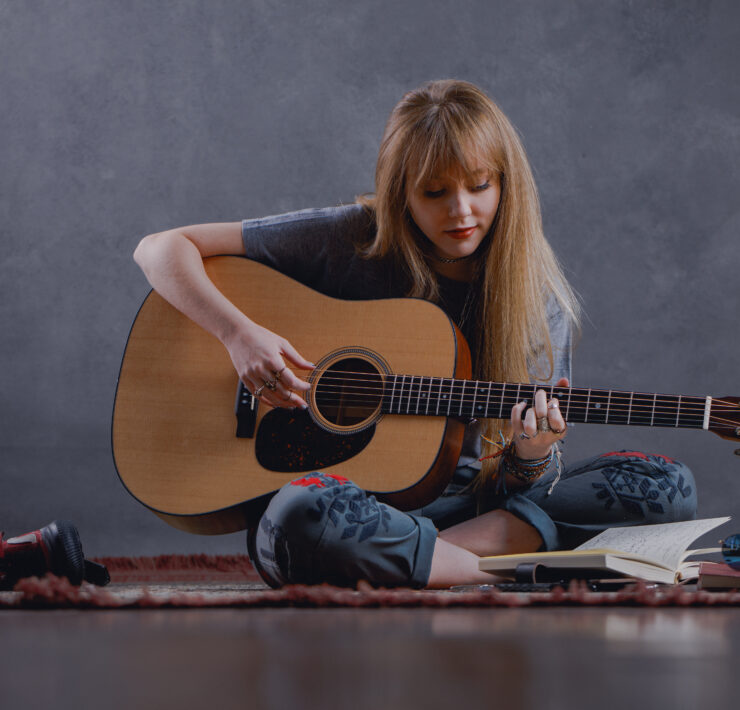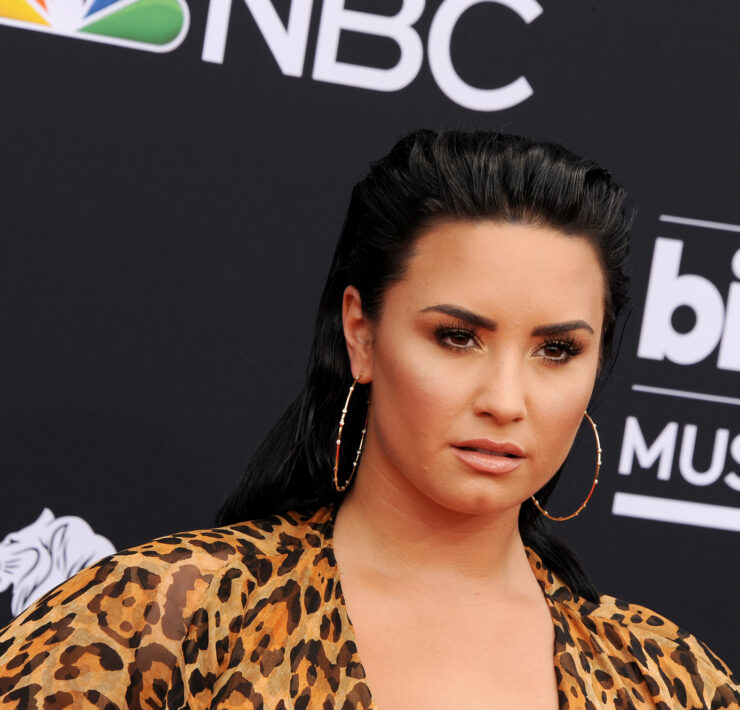Born to Perform: What drives lesbian and gay entertainers to the spotlight
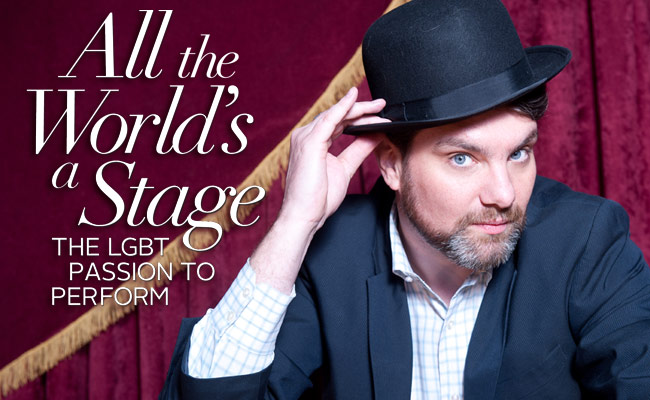
From a brightly-lit corner in a chilly North Denver warehouse of for-rent theater props, local stage actor Owen Niland transforms his poses for the camera into a theatrical performance.
The oversized building – a locally-owned business that offered its space to Out Front’s Feb. 20 issue cover photo shoot – is stacked with hefty 20-foot-tall plywood shelves and lined with any and every kind of decoration, antique furniture piece, linen curtain or painted backdrop you’ve ever regretfully forced yourself to throw out for lack of space. Despite the abundance of props, Niland has his own collection of interest items for the photo shoot, revealing, without provocation, a script – The Twilight of the Golds by Jonathan Tolins – which he opens to a random page. In a rich baritone voice, Niland begins reading lines, acting out their appropriate gestures and facial expressions. Photographer Meredith Harris snaps shots.
Niland, who acts part-time, makes performing seem effortless. “I was always someone who liked to have a little attention,” he said. “I always looked around and wondered about people – and how they acted, how they looked.”
It’s something a lot of LGBT people can identify with, it turns out. The performing arts have a reputation as magnets for gay people, inspiring lifelong passions often starting before young LGBT people even realize that what’s “different” about them is that they’re gay. What drives the connection between LGBT people and their individual desires to entertain? The performers Out Front spoke with had differing approaches to the question; Niland proposed his own.
.
Owen Niland – stage actor
By Matthew Pizzuti
Niland has been in theater since sixth grade, and that’s where, he explained through a humble cliché, he “caught the acting bug” – during a “knock-off” performance of Pinocchio.
“As a gay kid, acting is not so much a ‘craft’ as a survival mechanism,” Niland said – gay people learn how to ‘play a part’ when they realize they don’t innately fit what’s expected of them. “Anyone with a natural sense of style and drama can do theater. It doesn’t matter what your sexual orientation is; it’s whether you can create something people want to view. Do LGBT people do that better? I don’t know. But we do it often.”
“Plus,” Niland added, theater “was one of the places where I fit in, and people kinda appreciated my humor and understood how I worked.”
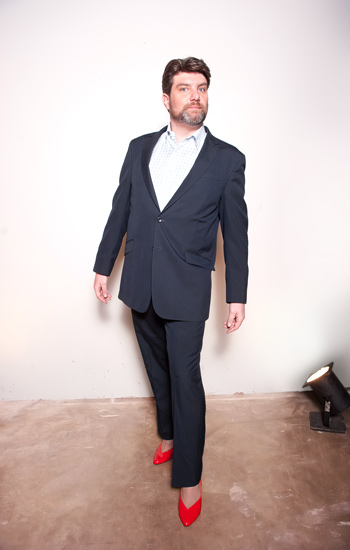
Photos by Meredith Harris/Out Front

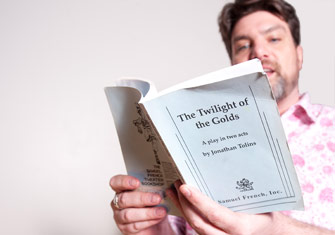
Stage acting through his teens and in college, Niland, a sociology major, performed in campus productions until he went to paralegal school. That’s when he left theater behind for a 10-year hiatus, working for a real estate company. In 2008 that market collapsed – “and I had some extra time on my hands,” Niland said.
Niland didn’t drop his day job. But with extra free hours, he dove back into his old love. The Denver Gay Men’s Chorus gave him his first opportunity to get back in front of an audience, and then he auditioned and performed in six shows back-to-back in 2009.
“That’s a lot if you’ve got a regular day job,” Niland said. “It’s hard – anyone who works in theater will tell you.” But Niland said he was surprised realizing how easily he’d let go of something he’d loved so much, and how enthusiastically he returned to it. After the first year’s intense performance schedule, he scaled back to find a balance and is now in three or four shows a year.
“My day job is rewarding,” Niland said, “but it doesn’t really feed my soul.”
At the cover photo shoot, Niland ducks behind a barrier for one of several costume and prop changes. He has a life-sized model of a human skull, which he adorns with a pair of sunglasses and grins at, lovingly, for a few shots. He dons a professional suit, then a blue denim shirt and tie, and later a pink floral shirt. He has a second script with him, The Sum of Us by David Stevens, which he pulls out while announcing the wisdom behind his selection: “Nobody will get this, but I brought two gay-themed plays.”
Niland reads from the second script with a funny-sounding twang, then stops. “I can’t really do an Australian accent,” he shakes his head.
To top off the photo shoot, Niland puts the suit back on, then slips into a pair of dazzling women’s-size-14 red heels.
“They’re ‘whore red,’” he says mischievously.
“Or Lipstick red,” Harris offers instead.
Niland said his highest aspiration as an actor is to do good work. “I’m not the kind of person who needs to perform in the biggest room in Denver,” he said (though the enormous stage supply warehouse might have been just that). “It’s always nice to get paid – but getting up on stage is reward enough.”
But it’s apparent that performance is a natural extension of Niland’s personality – in a humor, charm and self-awareness he carries even off stage, along with an eagerness to pounce on opportunities to draw a gasp or laugh. “I’d never say I’m ‘method’ or anything like that,” Niland said, “but acting brings an awareness, of being more present in the moment, through the rest of my life.”
.
Sarah Kirwin – improvisational performer
By Holly Hatch
Creativity and spontaneity – and a willingness to go off-script – are especially important when it comes to improv, script-free by definition. “A good improviser is naturally laid-back,” said Colorado native Sarah Kirwin, a local improv performer and teacher. “There’s a lack of judgment you have to have.”
Kirwin’s knack for performance bleeds through her telling of her life. Recalling past conversations, she adjusts her voice to seamlessly shift into the characters of friends and family members she quotes; she said improv gave her an ability to imitate, along with a sense of humor, that overcome her underlying shyness. “Leaving self-judgment at the door translates directly to one’s mindset in other areas of life,” she said.
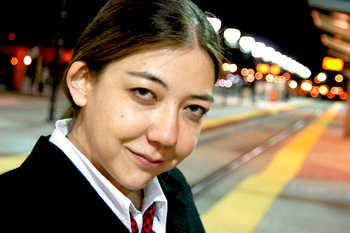
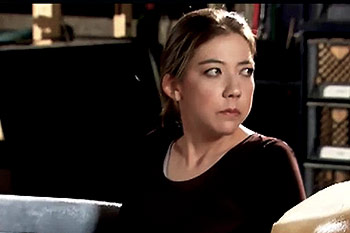
Photos courtesy of Sarah Kirwin
“When I first started improv, I could barely hold a conversation, I was so shy. Even this interview would have been a nightmare,” she laughed. “I think that being conscious of how gay you are at a young age makes you even more reserved, and it’s easy to go inside your shell.”
Kirwin first tried her hand at improv when she was 18. “I was too scared to try any other kind of theater, and it turned out to be a good fit for me,” she said. A year later, Kirwin came out as a lesbian to her mom.
“My mom kinda outed me,” she said. “We were watching a TV show, and she was like ‘Why –’” (Kirwin deepens her voice to mimic her Korean mother) “‘are you always watching the gays?’ I was like” (quoting herself in a playful, overly-intonated voice) “‘I dunno.’ So she said, ‘Do you like handsome men, or handsome women?’ and I’m like, ‘Mom, I like women.’”
The rest was easy, Kirwin said. “My family didn’t react poorly … all of my friends were like, ‘ummkay.’”
Kirwin said her sexuality comes out on stage. “I’ll end up making characters very gay,” she said with a laugh. “I really enjoy playing a real person. Sometimes I enjoy being the stereotypical [straight] girl; it’s great to explore something totally different than you – but I do love playing a good lesbian on stage.”
With a straight audience, that can be complicated; “Gay culture is hugely important to theatre, but it can be difficult for straight audiences to know how to react to ‘gay’ interactions on stage,” Kirwin said. “They sometimes don’t know if it’s OK to laugh at things, or they feel they don’t have permission to laugh. They don’t know if they’d be laughing with you, or at you.”
There’s an opportunity to abandon those concerns with a LGBT audience that ‘gets’ the inside jokes; “Every lesbian knows what it’s like to be at Tracks on a First Friday,” Kirwin said. “I can play up some of those humorous or uncomfortable situations.” On the other hand, a strong activist thread through some parts of the gay improv community has made LGBT venues a challenge, too.
Kirwin said she once inquired about auditions after attending an all-lesbian improv show. The woman replied (Kirwin switches to a dramatically-deepened voice), “‘You have to be an activist to be in this group.’”
Since then, Kirwin has wondered if being out is enough.
“Sometimes I feel when I’m on stage I should be trying to teach the audience a lesson,” Kirwin said. “I wanna be like ‘let us eat Chic-fil-A!’ But it’s not in my personality to go in that direction. Just displaying the human aspect of gays, as they are, is a wonderful thing.”
Improv is thought of as an intimidating and risky style of acting, with “a lot of listening and reacting to what you hear,” Kirwin said. But it might’ve been exactly what she needed to break out of her otherwise-withdrawn shell. “Improv has helped me with being able to feel more open in everyday situations,” she said. “You take full responsibility for what you say, and it can be scary, but also liberating because you don’t have the safety of the script.”
She went on, “It’s a discovery process, going through the scenes, stumbling into things and discovering them as opposed to creating them. A lot of people think you have to be super funny or super witty to attempt it, and that’s not true at all – a lot of the comedy and humor comes from the realness you can bring.”
.
Stacy Roquemore – stand-up comedian
By Holly Hatch
For stand-up comedian Stacy Roquemore, being real and funny is a way of life – and being out and open about his sexuality is a vibrant part of his humor.
“I’m usually the first to make fun of myself – I’m an easy target,” Roquemore said. “My sexuality is a huge part of my art. I feel an obligation, a responsibility, to the gay community to put a spotlight on [it]. I wouldn’t perform comedy unless I was able to include my sexuality.”
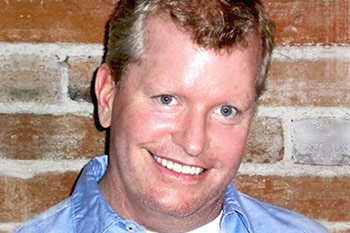
Photo courtesy of Stacy Roquemore
Roquemore started performing in Florida 10 years ago – though he said he’s always been a class clown. “I’ve always been able to cheer up people with a joke or funny gesture,” he said, “it just didn’t seem to be a workable career till much later in life.” He moved to Colorado four years later and considers Denver’s comedy one of the most robust in the nation.
Being a gay comic hasn’t always been fun and jokes; though Roquemore grew up in an accepting family – he came out to his mom at age 11 – he’s met resistance from audiences.
“It doesn’t always happen right in your face,” Roquemore said. “But you feel the audience pulling back and the body language changes. I was doing three shows one Saturday night at a club, and the early crowd wasn’t receptive. I could hear moaning and some people were being outright rude. When I got off stage, another comedian asked how I deal with that response. I said, ‘It just happens, not often, but it does. I do the job I set out to do, and learn.’”
Despite those moments, Roquemore is undaunted – he says depicting life with a touch of levity is how people grow. “I am multi-faced and by being myself at all times, I know it’s liberating for some and helps to empower them or open the eyes of others so that they can see that we are not threatening or harming anyone by being gay.”
“I’m quirky, full of life, easygoing and approachable,” he said. “My sexuality adds another dimension to that – I can camp it up one minute, and be more serious the next.”
.
Maria Kohler – singer/songwriter, musician
By Josiah M. Hesse
Maria Kohler’s own identity-shifting flexibility defines her career as a musician. Whether she’s fronting country-blues outfit M and the Gems, hamming it up in female comedy-punk quintet Harpoontang or going solo with her electro-rap alter-ego Kitty Crimes, she maintains an intense focus on songwriting, never letting leaps from one style to the next pigeonhole her.
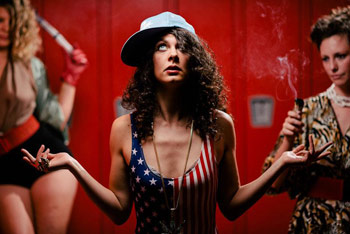
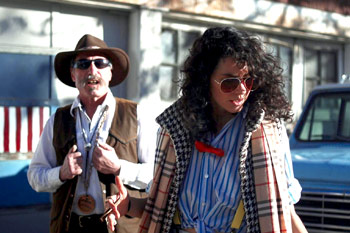
Photos courtesy of Maria Kohler/Kitty Crimes
Kohler started rapping at 13, often entering freestyle rap battles in online chatrooms. Making her way to Denver, Kohler hooked up with members of the local Americana band Paper Bird, forming their own raunchy side-project, Harpoontang, whose hilarious lyrics about sexual deviancy are well-recieved in the Denver comedy scene.
Last year Kohler released the video for her song “Yogue Out,” a playfully minimalist afternoon with her in a mountain cabin, dancing with the same “yoga fly-girls” that often perform with her on stage. Last February she dropped her latest video, “Find A Penny,” a buffet of local comedians, artists and musicians in a campy boxing drama, intercut with scenes of KC rapping from a helicopter cruising over the city at dusk.
She’s been gaining the most acclaim lately from Kitty Crimes. “I use Kitty Crimes as this vehicle to get me places,” Kohler said. “And I want to put the best fuel available to me in that vehicle – and the best fuel I have is my sexual journey. Becoming more familiar with my queer identity, and my feminine identity, and my male-identified self, I use these in my raps because it’s the most passionate substance I have as an artist.”
Kohler said that sexuality is a part of any performance, even if it’s not overt. “Any artist I appreciate is going to be sexy to me. I get super turned on when I see Feist play a live set,” she said. “I’m not necessarily on stage to be like ‘look at me, I’m sexy.’ I’m just trying to exercise fierceness, and if that involves a sexual tone to the show, that’s just going to come naturally.”
.
Nick Sugar – director, actor, choreographer
By Holly Hatch
Nick Sugar – a three-for-one actor, choreographer and director who knows stage performance like the back of his hand – said that sexual orientation doesn’t define his craft, but plays naturally into what the artistic world is about.
“The goal in theater is to discover truth on stage,” Sugar said. “To be able to discover truth you have to understand your personal truth: sexual, spiritual and emotional. Self-discovery is the essence to art and a journey that should continue as long as you’re an artist.”
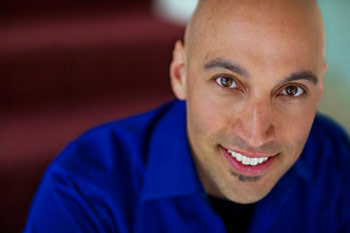
Photo courtesy of Nick Sugar
The work of the performer, Sugar said, is to relate to the audience on a human level, to break down judgment and pre-conceived notions about characters.
“The performing arts should help the audience feel and think on a deeper level,” Sugar said. “There is freedom in art. Being gay has not limited me. I embrace all aspects of myself which has only made me a stronger individual without concern regarding stereotypes.”
Sugar’s profession in the performing arts is constantly evolving. Honing his craft has enabled him to explore his many roles, from actor to director and choreographer, with work and experience spanning New York, Los Angeles and Hong Kong.
Through that, Sugar has come to believe the community of artists is one of the most inspiring aspects of that world – the diversity, in countless walks of life, combines with a necessity and openness of interaction to break down barriers.
“The greatest part of the arts is being able to work closely with other artists,” Sugar said. “We are encouraged to be vulnerable, revealing emotions and feelings that most people working in the corporate world are not able to do as freely. Theater artists have all types of personalities and come together to create a unified piece of art. That understanding makes it easy to be open to all types of people.”
.
Antoine Hodge – opera singer
By Holly Hatch
It was the friendly support from a fellow artist – a college choir director at Georgia Southern University – that brought local opera singer Antoine Hodge to a serious reflection of his talent. He sang in high school, but without classical training – and his self-confidence needed some work.
When his choir director showed him the light, “It was as if lightning struck,” he said. “I found a real intense passion that had been locked away. I really didn’t know, growing up, that I had any talent for singing, let alone the classical arts. My choir director arranged for me to have free voice lessons for a semester before encouraging me to join the opera.”

Photo courtesy of Antoine Hodge
Hodge soon found that performance was his escape. Living in Atlanta in the process of coming out as gay, he discovered the stage was his chance to be himself, without judgment.
“It’s a wonderful experience to immerse yourself fully in a different world, to become someone different for three hours a night,” Hodge said. In the same way, Hodge said a performer becomes an escape for the audience; “It allows me to share my joy for the art and helps to bring someone, who might never think to go see an opera, into the world and introduce them to something different,” he said. “My job is to suspend reality for just a bit, and enjoy a moment in a different place and time.”
But the art world itself can be a tough place to prove oneself, and as a black, gay artist – and a male in a field that violates a masculinity-oriented society – Hodge has experienced more than his share of judgment and adversity.
“To be an artist of any kind means you have to have a very thick skin; not only will you deal with being your own personal critic, you also have to be OK with hearing the word ‘No.’”
He said it’s probably obvious to some people that he’s gay. “When you hear me speak, you just know,” he said with a laugh. “Being gay doesn’t define who I am, but can strengthen who I become.”
Hodge doesn’t bring his sexual orientation onto the stage – “I save the ‘gay’ for my own life,” he said – but he brings what he gained from performing through his whole life.
“I don’t have the same fears about rejection and about what people might think of me, as I used to,” Hodge said. “Life is a stage, right? You really have to be able to laugh at yourself and be willing to make a fool of yourself on stage. It’s very liberating.”
.
Jill Brzezicki – singer/songwriter, musician
By Lauren Archuletta
Singer/songwriter Jill Brzezicki said her craft resonates with the journey and risks she’s taken to become the artist she is today.
Brzezicki classifies her music as Americana and folk, with influences ranging from Pink Floyd to the Indigo Girls and Melissa Etheridge. “A lot of my influences are typical ‘lesbian,’” Brzezicki said. “Heavy-hitters, women with a guitar, women songwriters.” But before she followed in the footsteps of her inspirations, she led a very different life – as a scientist.
With an undergraduate degree in chemistry and master’s in toxicology, Brzezicki worked in human health at Colorado State University before she started doing music. It wasn’t until she attended Song School in Lyons, Colorado that she leapt from beakers to microphones.
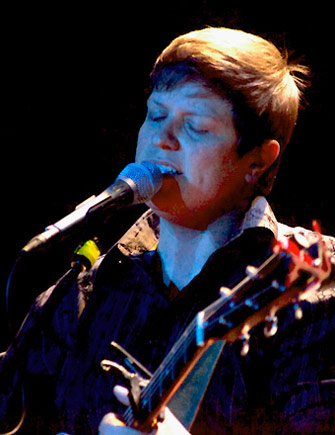
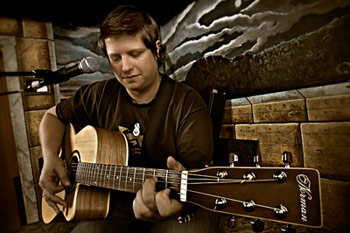
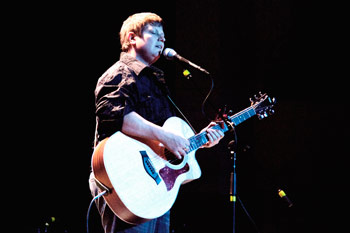
Photos courtesy of Jill Brzezicki
“That’s when I quit my chemistry job and started teaching, performing and running sound,” Brzezicki said. “I had a band, but I knew I wanted to do it more seriously.”
Although Brzezicki is a lesbian artist, she has a diverse following and says she tries not to play into stereotypes. “Me off stage and on stage are the same person,” Brzezicki said. “I don’t make [performing] a flamboyant activity, but if you look at me I think you can definitely tell that I’m gay. I guess you can say I’m typecast as a ‘butch dyke.’”
Brzezicki plays mostly in the Fort Collins area, but she’s been known to make an appearance in Denver – she used to be a regular at HER Bar’s “Girls with Guitars” night.
Still, she’s open to many venues. “I don’t want to pigeonhole myself into the LGBT market,” she said. “It’s a very pre-made market and a strong one, but I don’t want it to be my only market. My songs are pretty much across the board; most people can relate to them. They’re not gender or sexuality specific.”
As an artist, Brzezicki said, she hopes her audience will cast preconceptions aside, and see her and her music for what she, and it, really is.
“Instead of getting up there and walking like a stage performer that has a different character or something, I am my character.” Brzezicki said. “Me being on stage is my natural being.”
“Once I started getting on stage,” she said, “there was a spark that I have yet to find anywhere else.”
More on the performers
Owen Niland is a graduate of St. Bonaventure University, and has worked extensively in community theaters, summer stock and repertoire companies in western New York State and Pennsylvania. Here in the the squarest state Owen is proud to count himself a member of the Denver Gay Men’s Chorus, and has worked with such organizations as Firehouse Theater Company, Hunger Artists, and the Rocky Mountain Arts Association. More at bovinemetropolis.com.
Sarah Kirwin is an original cast member of the Bovine Theater’s show On the Spot performing in hundreds of shows over 12 years. Sarah has also written and performed for 8 Bovine sketch shows. She was also a writer/performer/producer for 3 independent sketch shows including “Divided By Whoopie” which was an official selection at the Chicago Improv Festival and Chicago SketchFest. Sarah was also a member of the The Box Fans, an all female troupe, which was the first Colorado improv group to be an official selection at the Chicago Improv Festival. Sarah has been teaching improv at the Bovine for 11 years and enjoys her title of Improv Instructor Extraordinaire! Sarah currently performs improv at the Denver Center for Performing Arts with Off-Center. She has appeared numerous times on film, television and radio. Most recently performing and writing for Starz/Encore movie channels. More at bovinemetropolis.com
Stacy Roquemore has been performing since start at the Improv in southern Florida, and now performing locally at such venues as Comedy Works and the Denver Improv. Roquemore was a finalist in the Funniest Comic in Palm Beach, and was a featured comic at the Laugh Track Comedy Festival 2010. Roquemore’s stand-up is inspired by true stories from his life, where he never fails to find the hilarity in any situation. Watch a video of Roquemore performing at the Cork in Fort Collins here. More on Roquemore in a previous story in Out Front here.
Kitty Crimes is the “music puppy” of Maria Kohler. Previous to the release of “Crimes of the Kitty: Volume One,” some years of crafting other areas of musical interest in the Denver scene occured, ranging from the stoner pop rock quartet M and the Gems to the raunch filth pop enterouge Harpoontang. The new feline moniker of the electro hip hop identity Kitty Crimes is familiar and comfortable to her, cyphoning cyphers at will originating from the passion for rapping grown at thirteen years old. Hear the music online at soundcloud.com/kittycrimes.
Nick Sugar is an award-winning director, choreographer and actor based in Denver and New York City. He has also served as an artistic director, producer and instructor throughout his career. He is currently directing and choreographing HAIR: The American Tribal Love-Rock Musical at the Town Hall Arts Center in Littleton. The show opens May 17 – info online at TownHallArtsCenter.com. More at NickSugar.com
Antoine Hodge is part of the ensemble at Central City Opera, where he performs and teaches year-round. More at centralcityopera.org.
Jill Brzezicki attended the Colorado Contemporary Music College in Fort Collins, Colorado in 2004 and graduated with a diploma in performance and education. Jill released her debut full length solo CD “Consequence of Truth” in 2007 and released her second full length CD “The Horizon” in September, 2012. As a solo singer/songwriter Jill has enjoyed supporting local and nationally touring bands as well as headlining local and regional venues. More at JillBrzezicki.com.
What's Your Reaction?
Founded in 1976, Out Front is the largest LGBTQ news organization in the Rocky Mountains. "Like" Out Front on Facebook: facebook.com/outfrontcolorado, and follow us on Twitter: @outfrontco.




